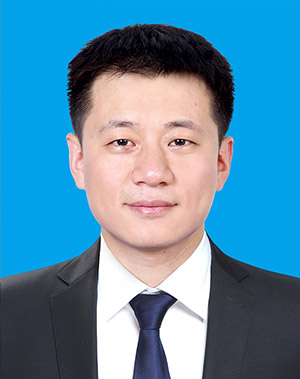
Life Sciences

Pu Gao received his B.S. degree from Shandong University in 2005 and his Ph.D. degree from the Institute of Biophysics, Chinese Academy of Sciences in 2011. After that, he conducted postdoctoral research at the Memorial Sloan-Kettering Cancer Center in the United States from 2011 to 2016. Currently, he holds a tenured professor position at the Institute of Biophysics, Chinese Academy of Sciences. He is also the secretary general of the Molecular Biophysics Division of the Chinese Biophysical Society, a board member of the Protein Division of the Chinese Society of Biochemistry and Molecular Biology, and a board member of the Chinese Crystallographic Society. Pu Gao's research has focused on "immune response and regulation of abnormal nucleic acids" and has produced significant and systematic results in both basic and translational research. His work deepens our understanding of cellular immune response and regulatory mechanisms, with potential applications in disease prevention, treatment, and the development of biomedical tools. Pu Gao has been recognized in various talent programs, including the National Science Fund for Distinguished Young Scholars (2023), the National Science Fund for Excellent Young Scholars (2019), and the National High-level Talent Recruitment Program (2016). He has also received numerous scientific research awards, such as the Tan Jiazhen Life Science Innovation Award (2023), the Chinese Academy of Sciences Young Scientist Award (2023), the VCANBIO Award for Biosciences and Medicine (2019), the Chinese Crystallographic Society Youth Science and Technology Award (2018), and the NIH Pathway to Independence Award-K99 (2016).
Immune response, regulation, and intervention of abnormal nucleic acid signals
The immune response to abnormal nucleic acid signals (caused by pathogenic infections or pathological conditions) is a crucial cellular mechanism for perceiving danger. This process is prevalent in almost all host systems, from bacteria to mammals. In mammals, the immune response to nucleic acids is closely linked to developing immunity to infections, activating tumor immunity, and triggering autoimmunity. A better understanding of this process can help in preventing and treating a wide range of diseases. In bacteria, the immune response to viral nucleic acids is the primary defense against infections, and studying this process can lead to the development of powerful biomedical tools. Pu Gao's research has focused on the host immune response and the regulation of abnormal nucleic acids in both mammalian and bacterial systems. His work has received extensive international recognition, including original basic research discoveries and the development of potential drugs and tools. In basic research, he has published several important and innovative works as the sole or last corresponding author (Cell 2023/2018; Nature 2022; Molecular Cell 2021/2019; Nature Microbiology 2020; Nature Communications 2022/2020; PNAS 2020; Cell Reports 2020). In translational research, he has established innovative small molecule and antibody screening platforms and secured licenses for three PCT patents for successful commercialization. One of his major achievements was selected into the "NRI at 20" by Nature Reviews Immunology in 2021.